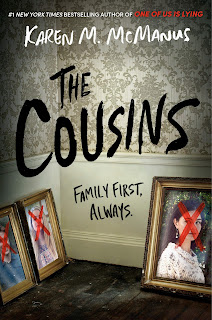The passage of time is so odd. Sometimes it speeds up, nearly a mile a minute, and then it slows to a crawl. But it's not always measured by speed. Sometimes time is more time, packed tightly together until it is compressed. I would say 2020 fits that description, as well as the first part of 2021.
October 22nd will always be a strange day since that's when I received the phone call that my painful "cold" wasn't even a cold at all, but COVID. I remember standing (then plopping onto the bed) in complete disbelief. Because after months of my fiance working in a hospital with COVID patients we didn't get it, but me working with students for less than a week led to a positive test result. It explained why I felt so off.
And then there were the symptoms, the whole thing. I remember being so tired it hurt and every part of me wanted to sleep but couldn't. I remember struggling to breathe when I talked to my students every day because I was worried they would worry, and I wanted to help my school, so I logged in and taught online. In hindsight, I should have rested.
Over time, my symptoms have lessened or changed, but COVID is still very present in my life. Even after both doses of the vaccine, I can feel some of the effects. It has been about 5 months since my diagnosis, and it wasn't until a week ago that I finally had some semblance of normal. 5 months is a long time to not feel well. And despite the fact that I did not die or end up in the hospital, it greatly impacted my mind and body.
So I thought it would be a good idea to give everyone an update about my symptoms. To be honest, we don't know what happens to COVID survivors years down the line. These effects are just the ones I can see/feel.
My Long Term Effects of COVID
***Internal damage/pulmonary embolism scare
When I didn't start feeling better by January, I knew I had to see the doctor. It had been nearly three months, and my school planned to return to face-to-face learning. I was worried that I could even walk to each location where I teach, and I needed to get a handicap pass to lessen the distance. So I made an appointment to figure it all out.
The doctor was worried about my safety after hearing that we were returning to face-to-face learning, and ran a series of tests. She found that I indeed had diminished lung capacity as well as some difficulties with my heart rate. It's common for COVID survivors to have lung/heart damage, so I wasn't surprised, but definitely defeated. She prescribed me multiple inhalers and gave some advice about recovery.
Then a test came back positive, and I received a very worried phone call; I needed to have a CT scan ASAP to determine whether or not I had a pulmonary embolism (a blood clot in my lungs). I went to the emergency room and was helped by a very wonderful group of nurses. The doctor read my scan immediately and determined that, while I did not have an embolism in my lungs, there was some scarring. It explained why I was still so tired and unable to return to normal function.
That week was the worst. I was either at the doctor's office, blood-drawing site, or ER every day for a week straight. By the way, my blood clotted way too quickly, and I had to go back and get poked again. It was pretty miserable.
***Loss of Muscle/endurance/increased heart rate
Whenever I've been sick in the past, it might take a few weeks, but then I could go back to my previous activities. The flu might take two weeks, but eventually, I could return to my routine.
One of the first activities I returned to after COVID was walking. I could only walk short distances at first, from the bed to my computer chair, from the couch to the kitchen. My step counter shows how I very slowly returned back to even a small amount of movement. I was averaging 15-20,000 steps a day pre-COVID, and afterward, I barely reached 3,000. There were some days lower than this.
Over the past 5 months, I've tracked my progress in the app, noting that I could not sustain increased activity for more than a day or two without days of recovery. It's very frustrating to feel well enough to walk one day, then almost bedridden the next.
I'm able to walk much farther distances now, but I'm incredibly weak compared to pre-COVID. I can't really lift heavy things without considerable effort. Of course, everyday activities require me to lift things, so I can imagine that was part of the reason why my recovery has taken so long.
***Some difficulty typing/writing
I remember back in November trying to speak Spanish to my students and completely failing. That eventually improved, as well as the feeling in my hands and feet.
One strange thing I've noticed is that I still misspell words. I KNOW how to spell it, but it's like my fingers don't receive the message from my brain. Usually, it's something that my spell checker catches right away, but it does mean that I need more time to write. As someone who could fly through typing, this has been an adjustment. My crafting also suffered, since my fine motor skills took a hit. I've tried to focus on crafts that don't require my fingers to be very sensitive, like doing latch hook rugs or coloring book pages.
Since returning to face-to-face learning with my students, I've noticed difficulty writing on the board too. My handwriting is the same but I make a lot of little mistakes when I write. This has taken a lot of practice to improve!
***Altered Sense of Taste and Smell Leads to Weight Gain
I'll be completely honest; I already had an interesting relationship with food. Sometimes I can't help myself from eating treats, and as a result my weight changes often. It's really easy to shovel cheap, crappy food in my mouth, but to some degree, I could keep things under control.
At first, not being able to taste may seem like an inconvenience. Why is tasting food necessary? Very quickly I noted that foods without strong flavors (salty chips, pickles, swiss cheese, dark chocolate) tasted like mush. When you can't taste you only feel, so things like vegetables and soup were so weird. Couple that with not feeling well, and it's no wonder I gained weight. Now I'm dealing with the effects of being overweight, which don't help my recovery.
When I spoke to my doctor about this, she gave me the idea to try
scent therapy. Basically, whenever I eat something, I smell it for a little while and try to remember a time when I smelled or ate something similar. It's a little weird to be sniffing my food all the time, but it's slowly making an impact. Just the other day, I was walking around an outdoor market and smelled herbs/kielbasa at the same time and cried a little (behind my mask of course!). It hit me SO HARD like memories of my Grandma Dolly, and so many memories rushed at once. Of course, I ate some kielbasa and sour kraut in her honor, so it ended well!
***Anxiety/Depression
This is the hardest to talk about, and notice how I left it to last! It was really hard to talk about mental health even BEFORE the pandemic. I'm not excited to share my feelings, but it's so important for people to know how bad this can get before they engage in risky behaviors or dismiss it outright. Mental health is important, so I'm going to be transparent about my own.
I had a lot of trouble with insomnia at varying times. Sometimes I could sleep for days straight, and others I wouldn't even be able to nap with only three hours of sleep the night before. I'd turn off my phone, take melatonin, do whatever I could to sleep, but nothing seemed to work. Luckily I was not teaching in person while this took place, so I was relatively safe.
There's also the fear that I spent several weeks wondering if I would get one of my loved ones/coworkers sick and cause serious harm. This is not something that is often discussed, and since it is very difficult to track COVID in large gatherings, I don't know if I'll ever know if I harmed someone. This bothers me sometimes, the not knowing.
Being so tired and anxious about others for so long takes a toll on the human spirit. I barely had the energy to do things I loved, even holding up a book took considerable effort. So my joy and creativity were the first things to go; if I could barely get myself to eat or take a shower, there was no room in my life for other things. If this were for a week or two, it would be fine. It took 5 months, inhalers/medication, and extensive testing for me to return to my craft desk without hesitation. That's a long time to stop doing what I love, and that is damaging for a creative person.
Then there's the injustice of it all. There are still black, brown, and indigenous people who are dying from COVID, and many are doing nothing to help. That hurts my soul, a deep wound that I don't know will ever heal.
ALSO, and I forgot to add this, getting the vaccine was traumatic for me. Not because it was that terrible with symptoms (not even close to the actual virus), but because it triggered my anxiety that it would take a long time for me to feel better again. If I have to get that vaccine every year and still have the side effects, I'll do it in a heartbeat. I just need to emotionally prepare better next time. Get your vaccine, please!
***In Conclusion...
Yes, I am feeling better now. It took so long to get to this point. Sometimes I'll walk someplace and just take a deep breath without it hurting, and maybe tear up a little. Just this little slice of a long-term illness has changed my perspective of life.
I like to think that before COVID I was empathetic towards people with chronic illness or at least aware of the struggles they face. Nope. 100% had no clue, and even just this little bit that I experienced isn't close. There are so many ableist attitudes I've had to confront in myself because they were right in front of me, and I couldn't ignore them. Like the fact that a grocery store setup is not conducive to someone who can't lift/reach/hold things. Or that there are no places to sit in most stores if you get tired. And just forget standing up and teaching for a while, especially if you can't walk, talk, and breathe! I discovered the many workarounds for these situations, but it still affects everyday life.
So in conclusion, dear readers, take care of yourself and your families. Believe someone when they say they've had a difficult time with COVID. Believe someone when they say they're coping with chronic illness and need assistance. When someone asks for help, do whatever you can, because believe me, it takes so much out of your pride and sense of self to admit that you can't do it all.
I hope you're doing well with spring. I can even smell it a little!
~Kristen






























